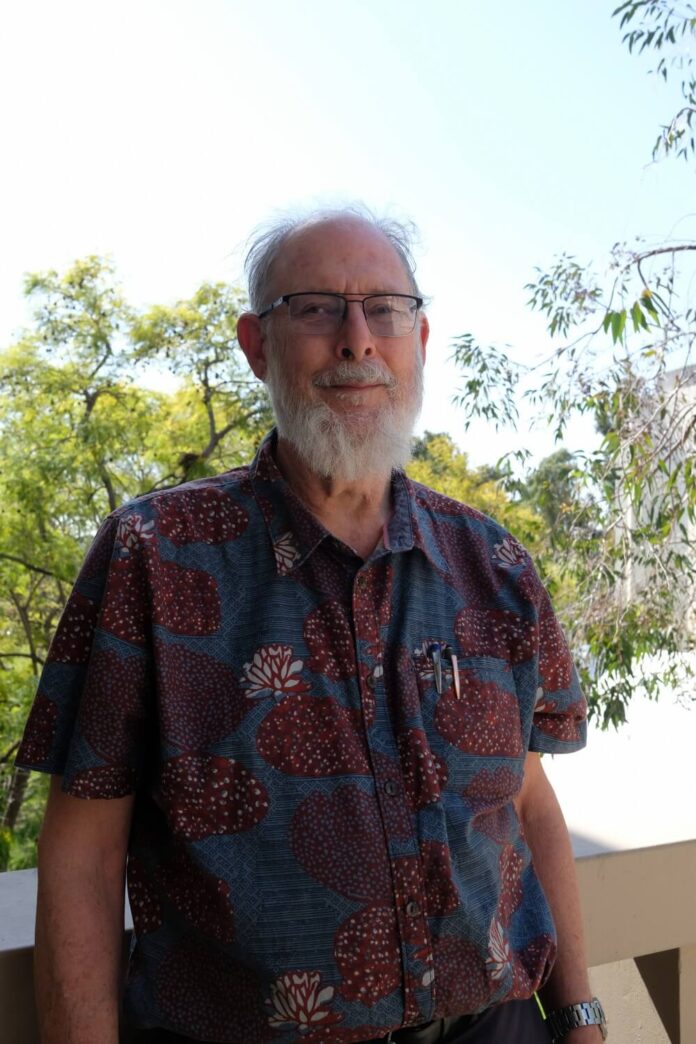
It is no secret that Eric Warren ‘69 has had a long connection with Eagle Rock. As a native of the area, Warren has long been part of the Occidental community — he said many of his childhood friends’ parents were professors at the college. In 2019, his work for the Eagle Rock Valley Historical Society (ERVHS) earned him the Alumni Seal Award for Service to the Community.
Warren said he started to work in local history in 2004 after he discovered some archives that were moved from Eagle Rock City Hall to the Center for the Arts Eagle Rock.
“I discovered the archives in a couple of closets just thrown in the corner, unsorted and in danger of being lost,” Warren said.
Over the years, Warren said he wrote three books on local history, including one in collaboration with former ERVHS President Frank Parrello titled “Pioneers of Eagle Rock.” According to Warren, this book details the history of Eagle Rock up to 1923, when Eagle Rock, which was then a city, was annexed into the city of LA.
“We were able to find first-person accounts of the history that said things a whole lot better than we could,” Warren said.
Warren said his work for the historical society included collaboration on a film by Alexandra Epstein in April for the Boulevard Sentinel honoring past Eagle Rock resident Helen Pratt.
“Miss Pratt was a real pioneer of bird watching, bird observation, habitats and ecology. She made her garden into a place that was very hospitable for native wildlife,” Warren said.
According to Warren, the current owner of the Eagle Rock house that Pratt lived in has continued to take care of the garden, which Pratt developed in the early 1900s.
“We have photographs of the garden when it was just beginning with Miss Pratt in it, and we also have photographs of the garden now,” Warren said.
According to Occidental’s Information Technology Services (ITS) Systems Administrator and current ERVHS chair David Dellinger, Warren worked heavily on transferring documents, photographs and other archival materials when the society migrated to its current website.
“Once he gets going on something and learns the technology, he just goes with it,” Dellinger said.
In collaboration with Highland Park Heritage Trust and Occidental College Special Collections, Warren said he worked on archiving and digitizing old newspapers from Northeast LA along with ERVHS board member and college librarian John de la Fontaine.
“We went through all the paper archives and organized them the best we could, even with some issues that were in poor condition,” de la Fontaine said.
According to ERVHS treasurer Katie Taylor, the society is currently working with Occidental’s Special Collections to bring the materials to campus.
For his 50th class reunion in 2019, Warren said he worked on a project in Scalar about the history of Occidental College in Highland Park and Eagle Rock upon receiving the alumni award.
“I was very honored to be selected as the Alumni Seal recipient for community service,” Warren said. “As part of the Alumni Seal award, they encouraged each of the recipients to produce a program of some kind.”
For the project, Warren said that he worked with former Center for Digital Liberal Arts (CDLA) research fellow Craig Dietrich, who co-created Scalar.
“We had about nine months to do it, so we were somewhat limited in our resources,” Warren said.
Warren said he would like to continue the project, as it primarily focused on the college’s history up until it moved to Eagle Rock from its location in Highland Park around 1920.
According to Warren, one of the most interesting things about the history of Occidental is how the infrastructure for the college was developed.
“When [the college] moved to its current site, there was nothing around,” Warren said. “The architects had to think about some really basic things: where you get the water, what do you do with the sewage.…You’re planning on putting roughly 500–600 people in a place that had no infrastructure.”
Warren said he found that the city of Los Angeles had added land very close to Occidental by the time the college was established. Warren said this indicated that while the college was not officially part of the city, they relied on it for most of its infrastructure.
“There was some effort by Eagle Rock boosters to have Occidental join the city of Eagle Rock, but I don’t think Occidental was very interested in that,” Warren said.
Warren said that one of the main reasons he keeps working on local history is that it is fun.
“I always find out new things that I missed in past collecting,” Warren said. “There’s so much to history — I enjoy it.”
![]()






























